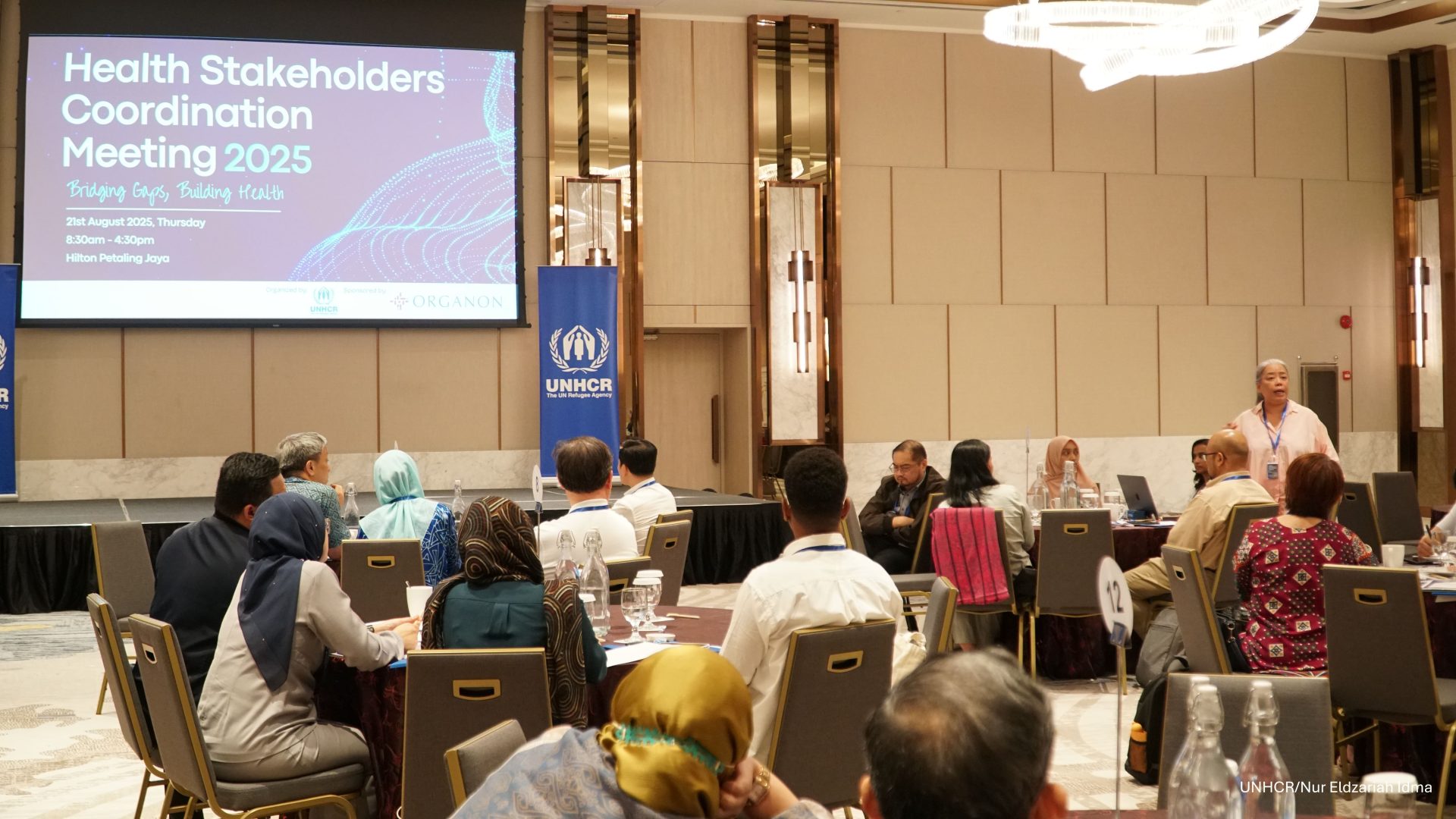On 28 August 2025, UNHCR Malaysia hosted the Refugee Health Stakeholders Coordination Meeting, bringing together over 100 representatives from the Ministry of Health, private and public healthcare providers, NGOs, academia, and refugee representatives
The meeting aimed to strengthen collaboration and improve access to healthcare for refugees and asylum-seekers in Malaysia. Key highlights included:
- Louise Aubin, Representative of UNHCR Malaysia, emphasized the urgent health needs of refugees, especially those displaced due to the situation in Myanmar. Malaysia currently hosts over 200,000 refugees and asylum-seekers, despite the absence of a formal asylum framework.
- Simin Azarmehr, a member of the Refugee Advisory Board expressed heartfelt gratitude to all stakeholders and stressed the importance of inclusive healthcare. She noted that excluding refugees from healthcare can also harm public health, as untreated illnesses or lack of vaccinations may lead to the spread of diseases.
- Dr. Susheela Balasundaram, Head of Public Health/Community-Based Protection at UNHCR Malaysia, provided updates on ongoing health initiatives and invited partners to collaborate in ensuring refugees can live healthier, safer, and more dignified lives.
- Several private sector and NGO partners, including Qualitas Health Malaysia, Klinik Amal Muhajir, Malaysian Relief Agency (MRA), Taiwan Buddhist Tzu Chi Foundation Malaysia, Médecins Sans Frontières (MSF) and others, shared their work and ongoing efforts to ensure refugees and asylum-seekers can access and receive treatment at their facilities.

Organon Malaysia, a healthcare company focused on women’s health and the main sponsor of the event, highlighted the importance of family planning in improving women’s health and overall family wellbeing. They explained the benefits of long-acting contraceptives like Implanon, which are safe, effective, and convenient. Organon also emphasized the need for proper counseling, managing side effects, and raising awareness so that women can make informed choices about their reproductive health.
The United Nations Population Fund (UNFPA) shared key findings and proposed solutions on Sexual and Reproductive Health (SRH) and Gender-Based Violence (GBV) among Myanmar refugees from a consultation session held in June 2025. Major challenges include cultural taboos, low awareness of available SRH services, high treatment costs, movement restrictions, fear among GBV survivors, limited access to services, and burnout among community workers. To address these issues, participants of the consultation proposed increasing awareness, increase men involvement, standardizing screening and referral pathways, and ensuring trauma-informed care. UNHCR also reminded participants of the existing GBV referral pathways and support services available for survivors in Malaysia.
The session concluded with a briefing by Allianz on the Refugee Medical Insurance Program (REMEDI), which offers affordable medical coverage for refugees. Participants discussed coordination challenges, funding gaps, and the need for stronger partnerships. Concerns were raised about difficulties in accessing REMEDI for in-patient care and the lack of public awareness. Attendees suggested more public campaigns to help scale up enrollment. Partners also highlighted the need to improve understanding of REMEDI’s coverage and recommended that private sector stakeholders explore ways to include conditions like mental health disorders, which are currently not covered.
UNHCR reiterated that collaboration among all public health actors is essential. Consolidating information and resources helps avoid duplication and ensures that service gaps are filled. UNHCR thanks all participants for their continued commitment to refugee health and looks forward to ongoing collaboration.
